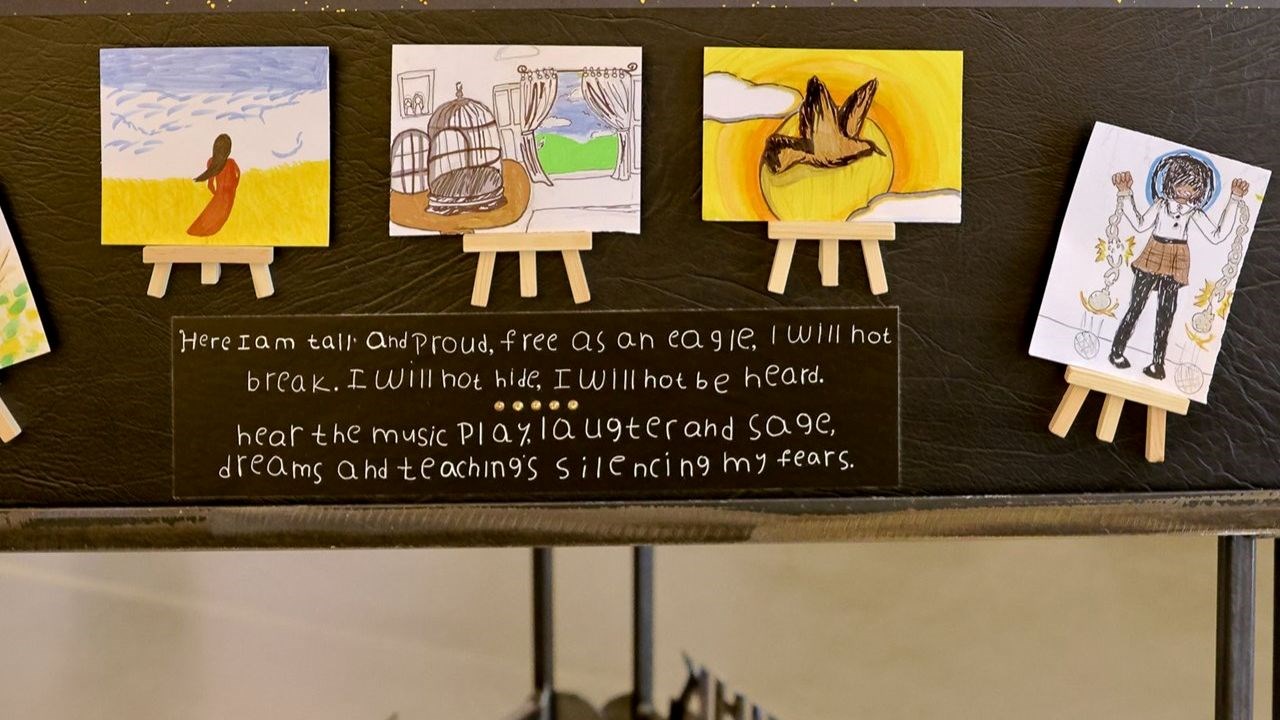Strathcona students showcase reconciliation through art and music
May 23, 2025 News Story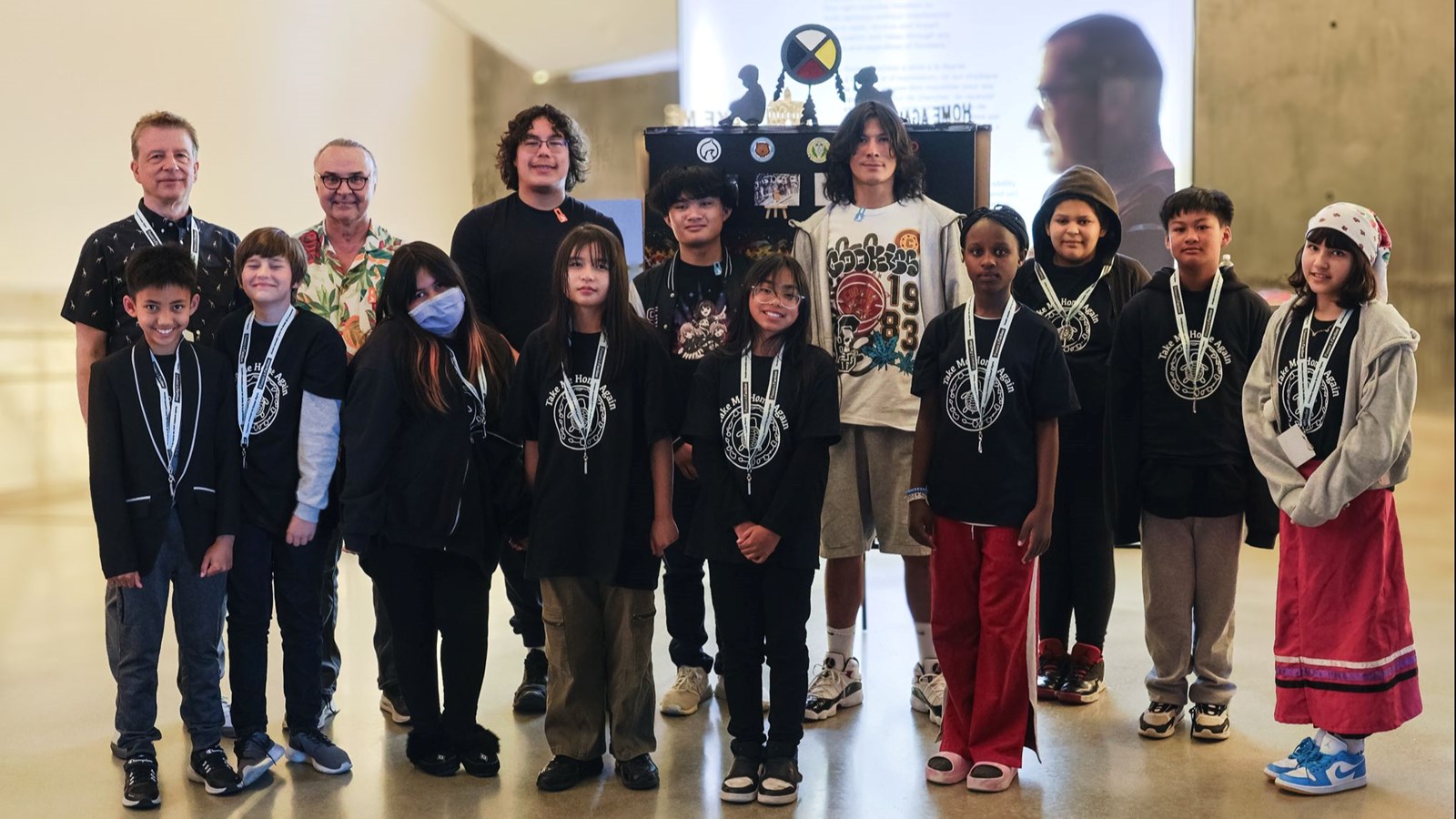
Grade 5/6 students at Strathcona School are transforming understanding into action through a remarkable project-based learning initiative on residential schools and reconciliation. The year long study, guided by teacher Peter Grozdanovic, brings together young voices from across schools in Winnipeg School Division.
"Our students embraced this challenging subject with open hearts and incredible creativity," says Grozdanovic. "They've shown what's possible when we trust young people with difficult truths."
The project, titled ‘Universal Human Rights, Residential Schools, and Reconciliation’, began in May 2024 with support from Southern Chiefs’ Organization Inc.
In September 2024, the Strathcona students dove into learning about residential schools through age-appropriate resources. They read accounts, listened to survivors, and developed their own responses through poetry and artwork.
"These young people approached this history with such respect," notes Divisional Knowledge Keeper Elaine Mayham, who visited the class several times. "They asked thoughtful questions and truly wanted to understand."
The collaboration expanded when Strathcona students partnered with Tec Voc music and broadcasting students to transform their poem titled “Take Me Home Again” into original music and then a video. It featured Good Heart Elk Singers, an Indigenous drumming group from Tec Voc.
Jerry Semchyshyn, teacher at Tec-Voc's music program and several of his students hosted the elementary class and mentored them on creating music using digital media.
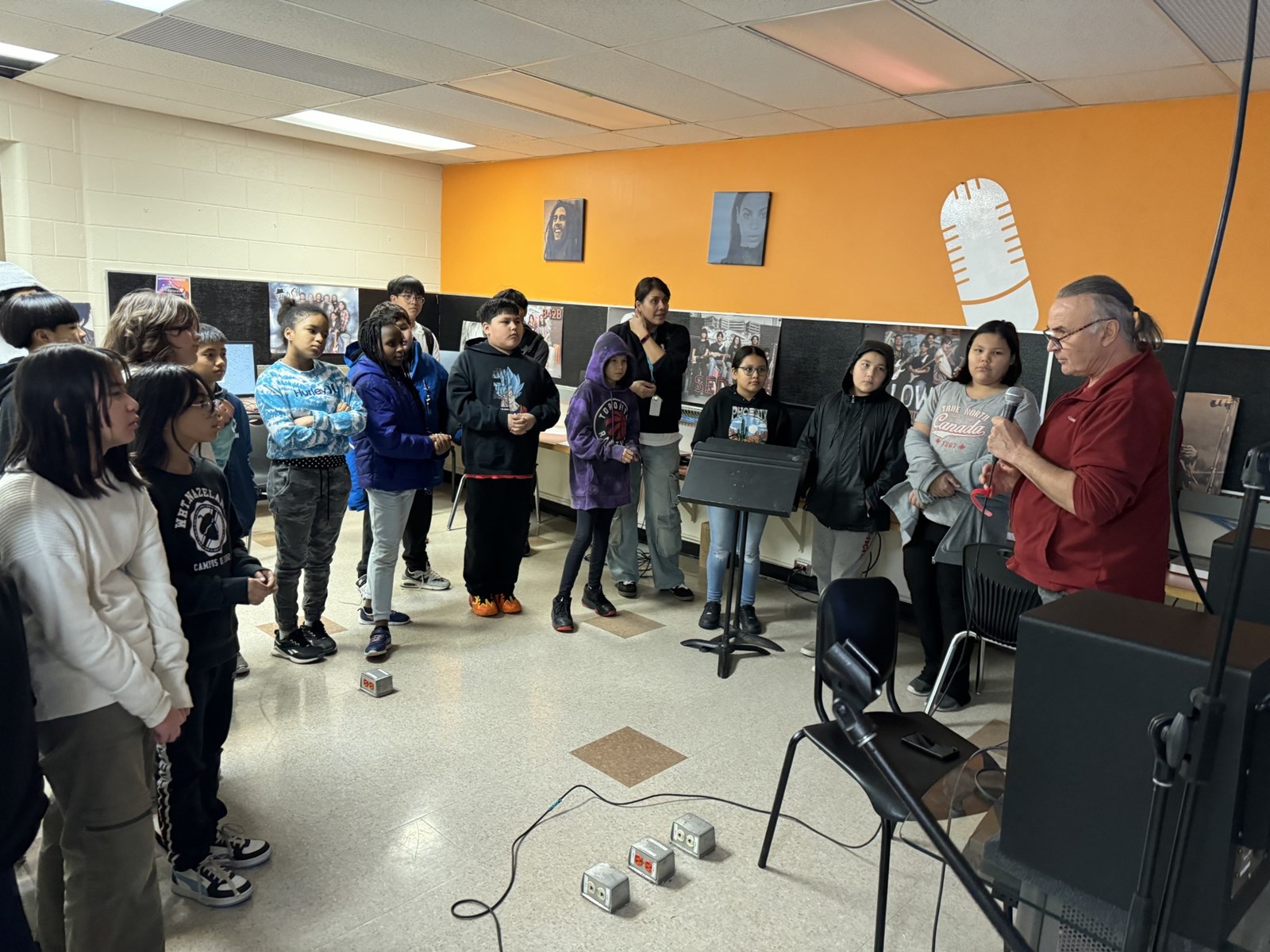
High school students from R.B. Russell's welding and graphic design programs also collaborated on the project. A group of students, under the guidance of graphic design teacher John Sobkovich, designed a logo for t-shirts worn by the Grade 5/6 students.
The Strathcona students created a logo concept with a turtle that represents truth, a sacred teaching that they felt best represented the project’s purpose. Graphic students then helped them refine the design and learn how to digitize it. They also learned the art of screen-printing the logo on the t-shirts.
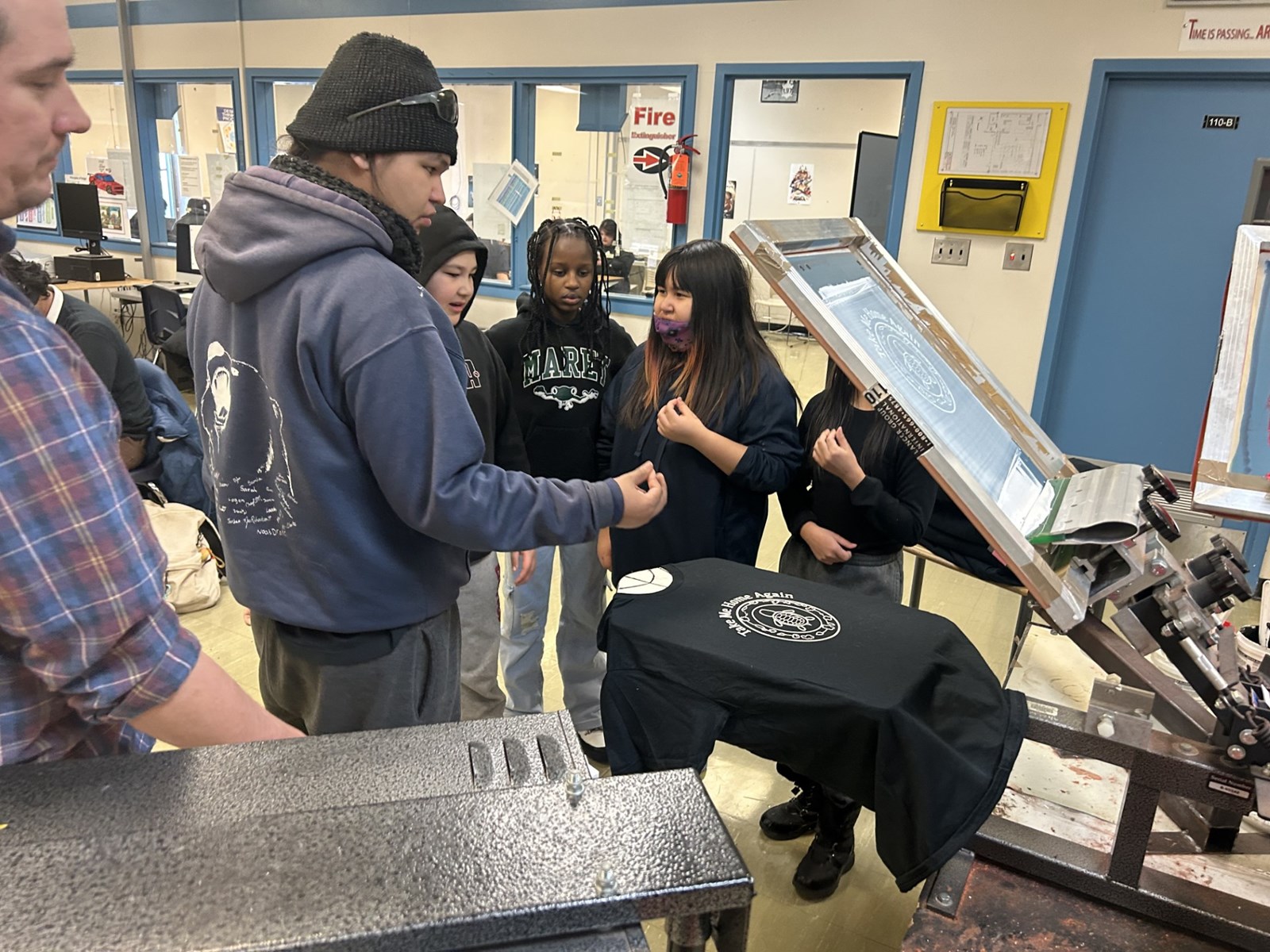
Mike Johnston, instructor from the welding program, and two of his students constructed the frame that displayed the students' artwork. While the elementary students were unable to operate welding equipment due to their age, the entire class toured the welding department and observed how computers are used to create unique welding art.
"Working together made everything better," says Josef, a Grade 6 student. "We learned so much from the older students at the other schools."
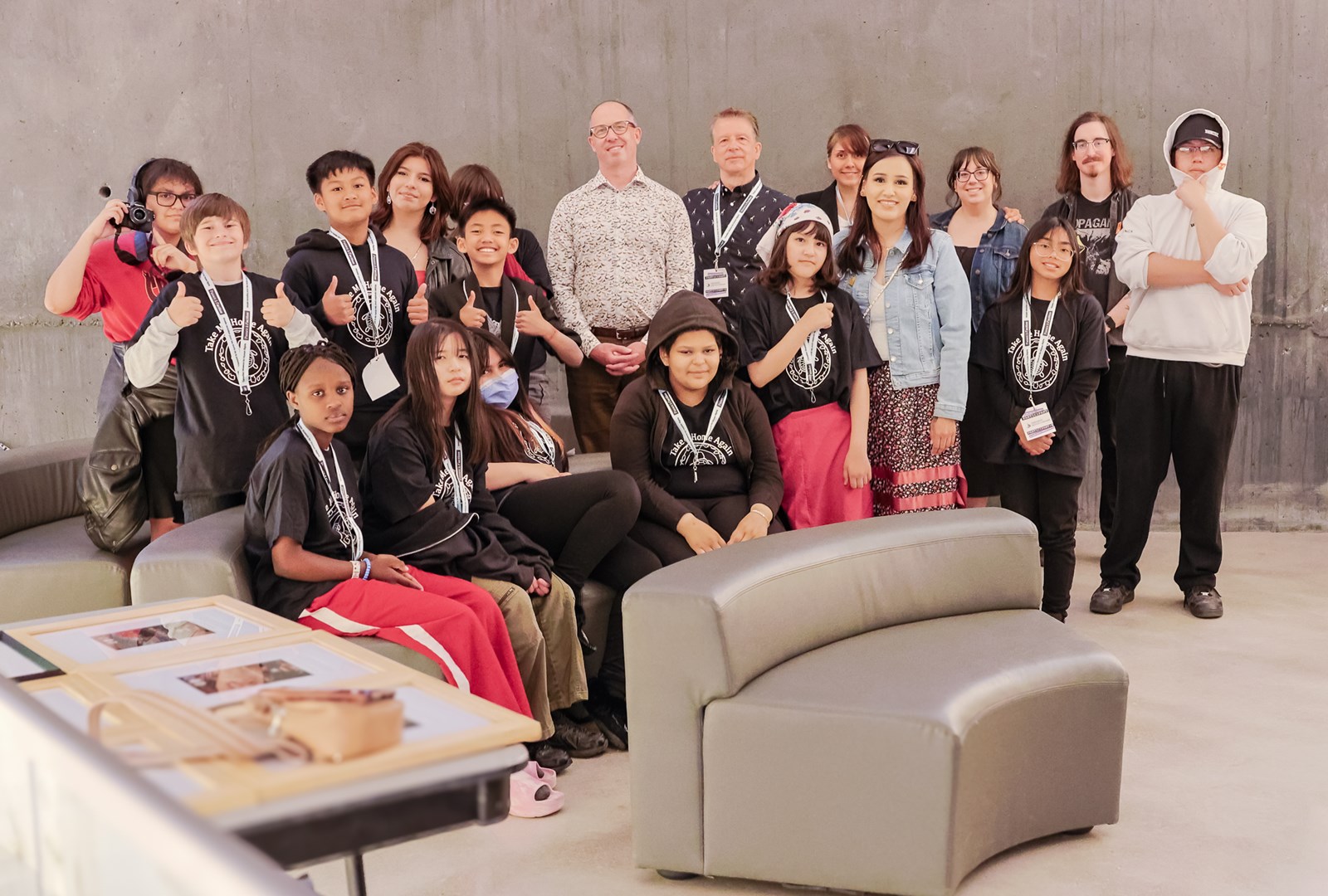
Teresa, another Grade 6 Strathcona student, explains why this project carries such importance.
"It is still important to talk about residential schools because of how horrible and traumatic it was to First Nations children," she says. "It caused generational trauma and has affected the Indigenous community to this day."
Students also created visual art pieces to express their learning. These works complemented their poem and musical expressions in more ways.
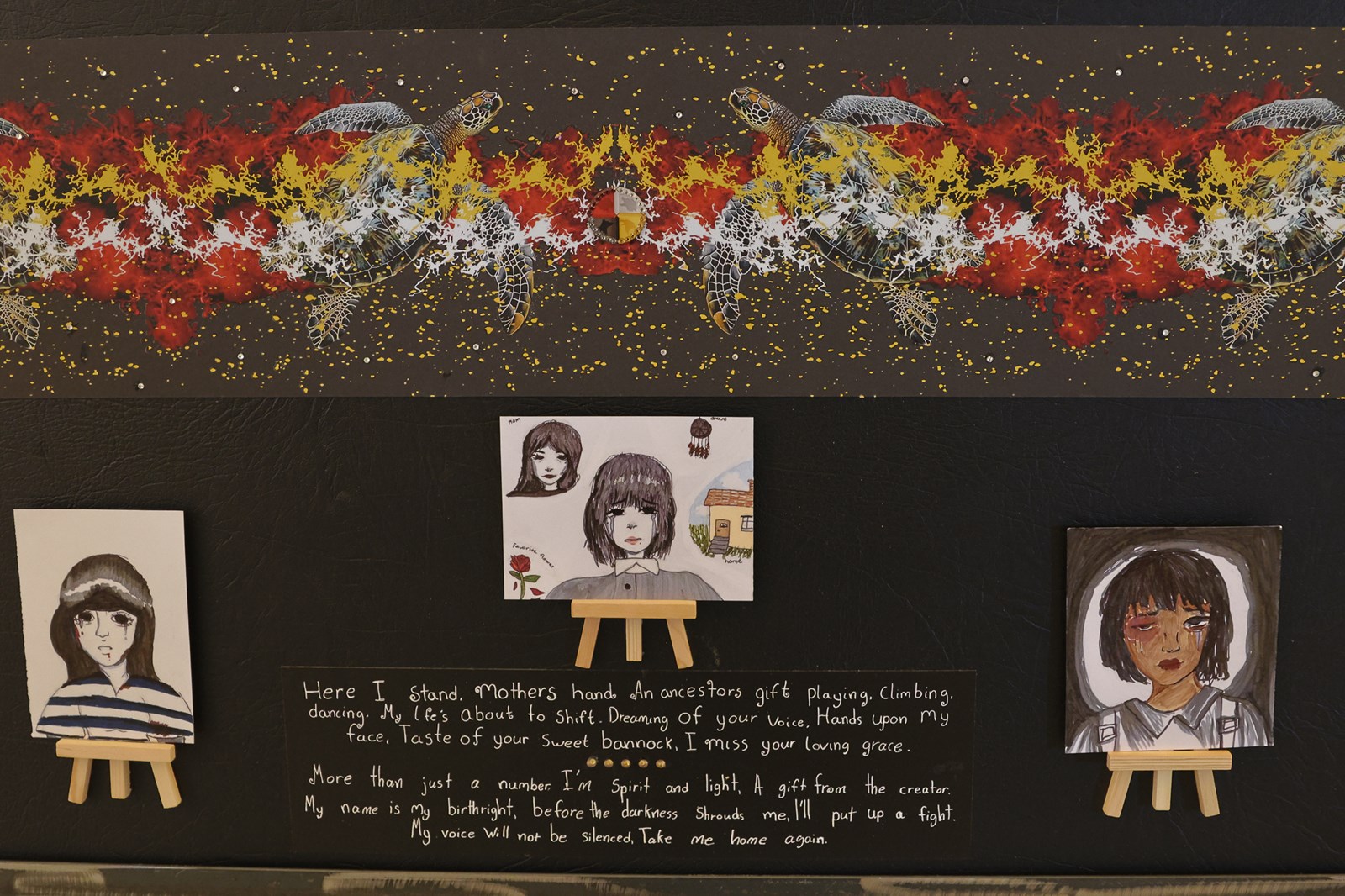
"The art helped me show feelings I couldn't put into words," explains April, a Grade 5 student. "Sometimes pictures say more than talking can."
Strathcona students presented their poem, video and their artwork recently at the ‘Upstander Showcase’ event at the Canadian Museum for Human Rights. The Grade 5/6 students joined peers from across the city who also advocated for human rights.
For six weeks, a dedicated team of students rehearsed their presentations, fulfilling a goal set in May 2024 to share their work at the museum.
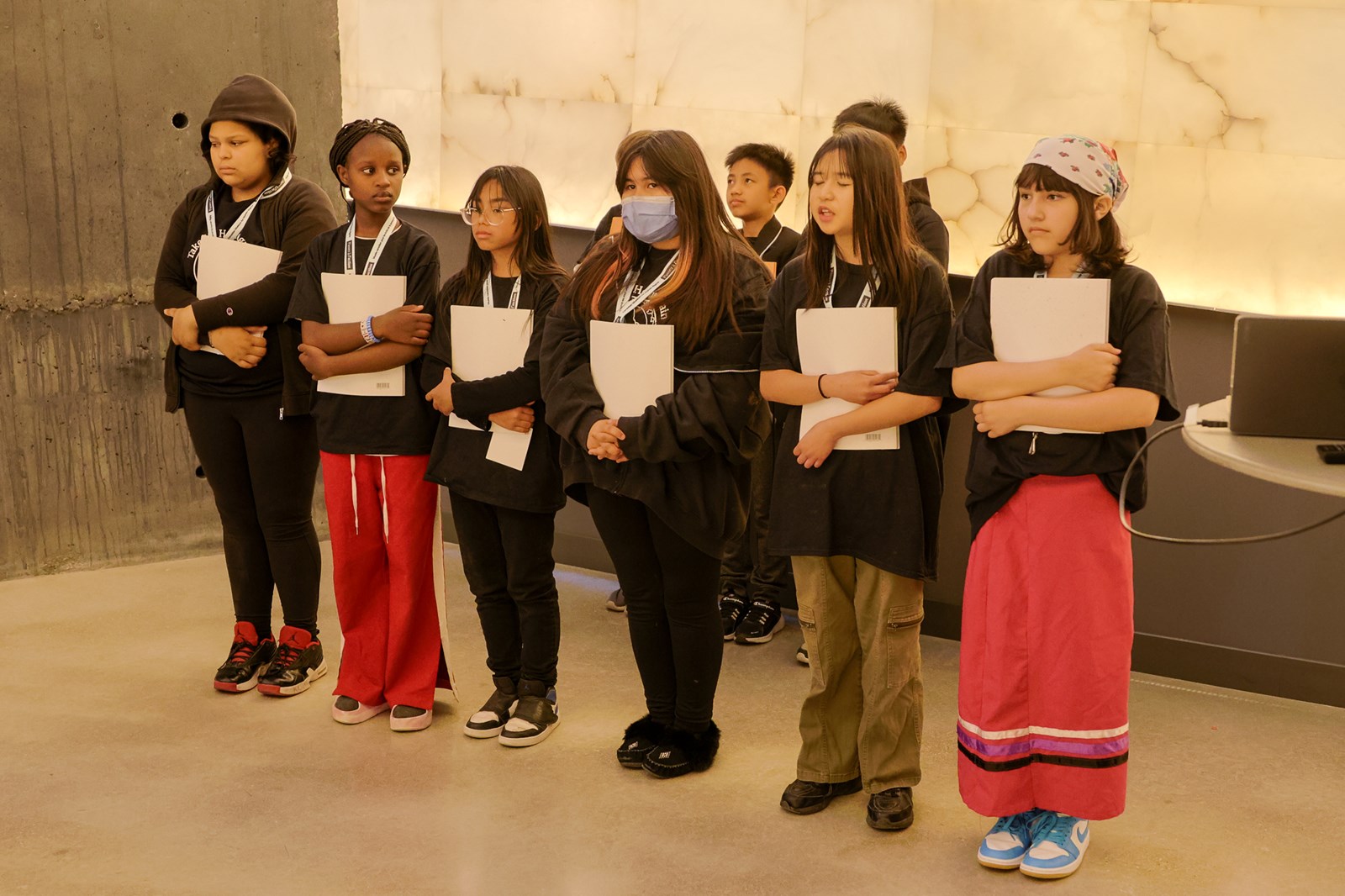
"This project allowed students to explore critical, real-world content that teaches true history," explains Principal Jeremy Midford. "Reconciliation isn’t just about learning, it’s about providing students opportunities to take action in their own communities and help raise awareness to important issues that matter deeply."
Through this project, students discovered that education can bridge divides. They learned that even young voices can contribute to reconciliation in meaningful ways.
"Seeing students transform from learners to teachers has been incredible," says Grozdanovic. "They now understand they have the power to create change."
See the students' hard work and poem come to life in this student-created video below:
-----------------------------------------------------------------------------------------------------------
Students at Strathcona expressed these stages and emotions through their artwork, using the feelings associated with each phase of their poetry as inspiration.



